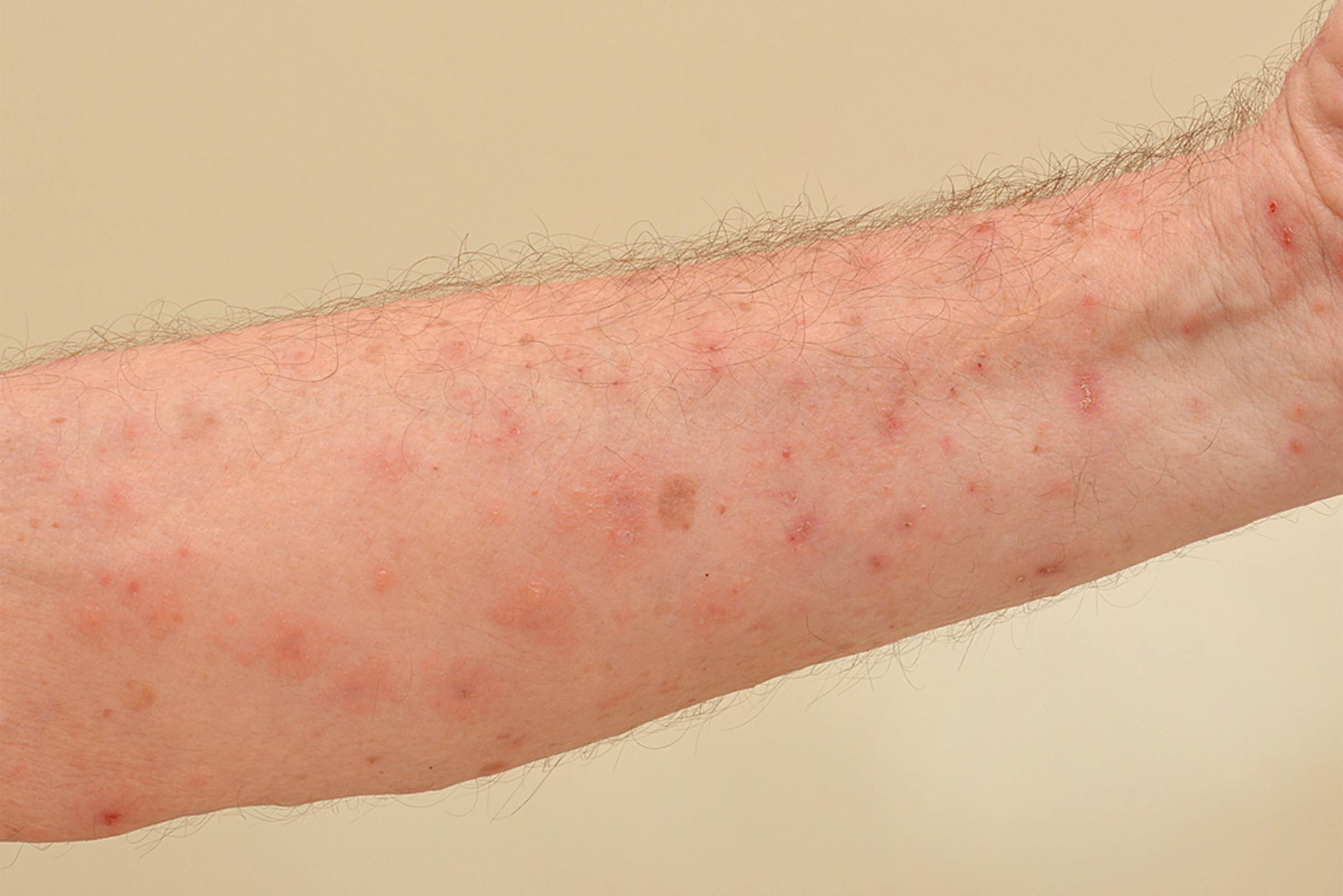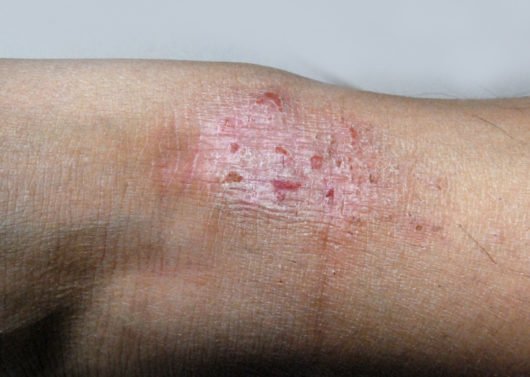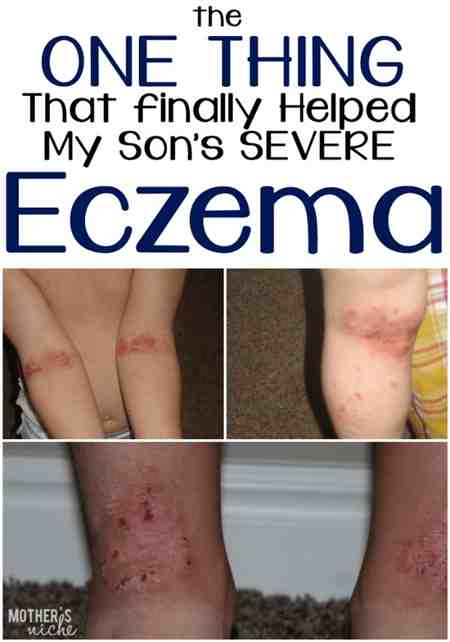Eczema And Atopic Dermatitis Treatment
Your doctor may prescribe a corticosteroid cream or ointment to apply to your rash. This will help reduce itching and calm inflammation. Use it right after bathing. Follow your doctors directions for using this medicine or check the label for proper use. Call your doctor if your skin does not get better after 3 weeks of using the medicine.
Antihistamines like hydroxyzine reduce itching. They can help make it easier to not scratch. A new class of drugs, called immunomodulators, works well if you have a severe rash. Two drugs in this class are tacrolimus and pimecrolimus. These drugs keep your immune system from overreacting when stimulated by an allergen. However, they can affect your immune system. So the Food and Drug Administration recommends that these drugs be used only when other treatments wont work.
Try not to scratch the irritated area on your skin, even if it itches. Scratching can break the skin. Bacteria can enter these breaks and cause infection. Moisturizing your skin will help prevent itchiness.
Change How You Manage Your Symptoms
Eczema usually flares during the winter months, as cold temperatures and dry air can dry out your skin. Make sure you are using an adequate amount of emollients to add moisture to your skin and prevent winter itch.
Sometimes products that you think are gentle on your skin can trigger a reaction later on. You may need to spend more effort finding the right products that are easier on your skin. Always patch test any beauty products such as makeup, serums, facial and body cleansers, lotions and shampoos before using them.
With your doctors guidance, it is reasonable to experiment with home remedies and alternative treatments. Some patients may experience modest improvement from the following:
- Colloidal oatmeal.
- Bleach bath.
- Apple cider vinegar.
No matter how committed you are to your treatment plan, you may lose treatment response over time. Poorly controlled eczema can lead to skin discoloration, scarring and infection.
The spread of eczema to other parts of the body is a huge challenge to patients. Those who have not had success with other therapies should consider a change in treatment. Ask your provider about newer eczema medications that may help you.
Preventing The Spread Of Eczema
Preventing the spread of eczema depends on the type of eczema a person has. For example, contact dermatitis will stop spreading once a person removes the source of irritation. Eczema that has become infected may require topical or oral antibiotic treatment.
One of the main ways people can prevent eczema from becoming more inflamed and itchy is to avoid scratching. Treating flare-ups as quickly as possible can remove the temptation to scratch. It may also help if people keep fingernails trimmed or wear cotton gloves to bed.
Read Also: Athlete’s Foot Or Eczema
What Can I Do In The Meantime
The solution lies in identifying and avoiding the cause, heaps of emollient and a possibly short course of a potent steroid ointment from your GP wrapping the hands in clingfilm overnight helps the steroid to penetrate the skin better and stops it rubbing off on the bedclothes, which could be a real fire hazard in the case of paraffin-based emollients. In very severe cases, short courses of oral steroids are prescribed or longer-term courses of immunosuppressants that damp down the whole immune system. Antibiotics are only useful if there are signs of infection-like pus or weeping blisters.
Why Are My Hands Red Raw Since I Started My New Job In A Hospital

It could be the hand sanitiser. Contact dermatitis causes red, cracked, itchy and sore skin in places where irritant chemicals, or ones you are allergic to, touch the skin. A patch of eczema round the belly button, earlobes or round a new piercing is often due to an allergy to nickel, which is found in buttons, jean studs and cheap jewellery. Hand sanitisers, excessive hand washing and chemicals used by hairdressers, painters and gardeners can all be irritants and cause eczema, primarily on the backs of hands. Stevens says applying moisturisers immediately after washing hands replaces the natural oils in the outer layer of the skin that are removed by soaps and detergents.Allergic reactions tend to affect the back of the hands where the skin is thinner and more sensitive and irritant eczema affects the spaces between fingers and under rings. Hand eczema often affects the nails too which look rough, ragged and cracked. People who develop contact eczema at work may find it so hard to avoid the chemicals responsible that they eventually have to give up their jobs.
Don’t Miss: Tubby Todd All Over Ointment Eczema
What Can I Expect If Ive Been Diagnosed With Eczema
Nearly half of children with eczema will outgrow the condition or experience great improvement by the time they reach puberty. Others will continue to have some form of the disease. For adults with eczema, the disease can be generally well-managed with good skin care and treatment, although flare-ups of symptoms can occur throughout life.
When To Seek Medical Advice
You should see your GP or pharmacist if you think you may have discoid eczema, as the condition can take a long time to improve without treatment and it may keep recurring.
You should also seek medical advice if you think your skin may be infected, as you may need to use antibiotic cream or, in very severe cases, take antibiotics tablets.
- oral corticosteroids for severe flare-ups
- antibiotics for infected eczema
- antihistamines for severe itching
There are many different preparations for each type of medication and it is worth taking time with your pharmacist to find the best one for you.
A range of emollient products, soap substitutes and some topical corticosteroids can be bought from pharmacies without a prescription. Some of them are cheaper to buy this way than with a prescription.
Ask your pharmacist for advice on the different products and how to use them. See your GP if your eczema does not improve after using an over-the-counter preparation.
Also Check: Types Of Eczema On Scalp
Everything Youve Ever Wanted To Know About Eczema
Eczema can be a year-round torment for the 1.6 million adults affected in the UK, but winter causes particular misery. So how can you avoid it or treat it if you have it?
Winter can be grim: coughs, cold, flu and the general sense of malaise brought on by dark nights, too much food and not enough exercise. And to add to the misery, as the temperature plunges and the heating goes on, normally reliable and trouble-free skin can start to itch, flake and drive a person to distraction. Welcome to the onset of winter eczema. About 1.6 million adults in the UK live with eczema, many since childhood. It can be a year-round torment or flare up in the cold months. A recent Allergy UK survey of adults with eczema found that 88% say it has an impact on their daily lives, 58% say it affects personal relationships and 73% claim that their social life suffers. But despite the scale of the problem, adult eczema remains an underfunded, under-recognised and undertreated condition that can cause profound distress.
How Common Is Eczema
Eczema affects up to 15 million Americans. Infants are prone to eczema and 10% to 20% will have it. However, nearly half outgrow the condition or have significant improvement as they get older.
Eczema affects males and females equally and is more common in people who have a personal or family history of asthma, environmental allergies and/or food allergies.
Also Check: Diet And Eczema In Toddlers
S Of The Body Commonly Affected By Eczema
The parts of the body that are commonly affected by eczema usually depend on the patient’s age. In children with eczema, the commonly affected areas may vary as well as in adults. In babies and children, the disease usually attacks parts of the head such as the face, cheeks, and scalp. Scientists contend that the condition reflects the parts of the body where the child is able to easily scratch. In adults, the disease will most often attack the knees and elbows, which similarly reflect the parts of the body where the adult can easily scratch.
Use An Air Purifier To Battle Environmental Triggers
Consider buying an air purifier for your home to help remove dust, pollen, and other allergens from the air, says Joshua Zeichner, MD, director of cosmetic and clinical research in the department of dermatology at The Mount Sinai Hospital in New York City. When inhaled, these air particles can drive allergic reactions in the skin, explains Dr. Zeichner, adding that more research is needed to prove that air purifiers truly benefit people who have eczema. Zeichner recommends opting for a HEPA purifier with a carbon filter for added protection.
Read Also: What Foods Trigger Eczema In Babies
What Causes The Spread Of Eczema
The condition is non-contagious, so you cannot pass it on to someone else. However, your rash can get bigger and spread to other parts of your body, including your face and scalp. Allergens, germs and scratching an itchy rash can trigger more inflammation that causes eczema to worsen and spread.
1. Scratching
Flare-ups are not the same for everyone. In some people, the itch can be so severe that scratching is simply unavoidable. Scratching can make your eczema worse because it triggers the release of inflammatory substances, which brings in more inflammation.
Furthermore, repeated scratching and rubbing can turn a rash into a plaque of thickened skin. This process is called lichenification.
How to Manage ItAs much as possible, you want to stop the itch-scratch cycle. Oral and topical anti-itch medications are available over the counter. Some are available only by prescription. Creams, gels and ointments with low-grade steroids can reduce inflammation and relieve itching, thus preventing the spread of eczema.
2. Irritants and Allergens
Common triggers for eczema include exposure to allergens, such as pollen, animal dander, mold and dust mites. Skin irritants found in many household products, such as soaps, detergents and antibacterial cleansers, may also trigger a flare.
3. Microbes
4. Stress
How Is Eczema Diagnosed

There is no specific test used to diagnose eczema. The doctor will look at the rash and ask about symptoms, the child’s past health, and the family’s health. If family members have any atopic conditions, that’s an important clue.
The doctor will rule out other conditions that can cause skin inflammation, and might recommend that your child see a dermatologist or an allergist.
The doctor may ask you to ban some foods from your child’s diet, switch detergents or soaps, or make other changes for a time to see if your child is reacting to something.
You May Like: How Do You Get Hand Eczema
Trigger : Physical Wear And Tear
Minor hand trauma from tasks like digging in the garden with bare hands can cause hand eczema or make it worse, as can friction from activities like handling large quantities of paper.
How to dodge it: Wear task-appropriate gloves. Cotton and fabric gloves can keep hands clean and protect against abrasions, but they may not be adequate for work with rough or sharp materials. Working with thorny plants, palm fronds or brambles may require leather gloves with longer cuffs.
Avoiding eczema triggers often goes a long way toward managing the condition. The key is to be diligent. It can take a massive amount of effort if you have severe hand dermatitis, and people often want a quick fix, but putting in that effort to take care of your skin really pays off in keeping eczema from coming back, said Dr. OBrien.
Dont get discouraged: Hand eczema can be stubborn, and it may take a few months for the patches of red, scaly and inflamed skin to fully heal. After that, your eczema is less likely to return.
Medical Review By: Ted Schiff, MD
When Infections Cause Eczema Blisters
People with eczema are more prone to infections because burst blisters or damaged, raw skin can be a breeding ground for bacteria, fungi, or viruses, says Amy Kassouf, MD, a dermatologist with the Cleveland Clinic in Twinsburg, Ohio.
One particularly dangerous infection is called eczema herpeticum the result of atopic dermatitis and contact with the herpes simplex 1 virus , the virus that causes cold sores and some cases of genital herpes, according to the NEA. The infection can occur when someone with even mild eczema has skin-to-skin contact with HSV-1. Many watery eczema blisters break out and are very itchy. The infection spreads fast, leading to fever and flu-like symptoms, and the fluid inside the blisters turns to yellow pus.
If the infection is untreated, it can eventually affect vital organs and ultimately lead to death, although thats rare, the NEA says. Treatment for eczema herpeticum consists of antiviral medications and painkillers as needed.
Infections from the Staphylococcus aureus bacteria can also cause pus-filled blisters and honey-colored crusting over the skin, according to the Mayo Clinic. Treatment of a staph infection includes antibiotics and drainage of blisters or wounds.
Signs an eczema blister has become infected include red color, warmth to the touch, whitish liquid drainage, and swelling, Rieder says.
RELATED: Your Everyday Guide to Living Well With Eczema
Don’t Miss: How Does Eczema Look Like
Seattle Children’s Urgent Care Locations
If your childâs illness or injury is life-threatening, call 911.
Scratching Can Increase The Spread Of The Disease To Other Body Parts
The lists above only present the parts of the body that are most commonly affected by eczema. In reality, all parts of the body can be affected by the disease. Eczema can cause the development of fluid-filled lumps, which can also be very itchy. However, you are not supposed to scratch them. If you do, you can easily pass the infection to other parts of your skin and further increase your skin problem.
You May Like: Eczema On The Palm Of Your Hand
Take Vitamin D Supplements
Taking vitamin D supplements in the winter may improve eczema flare-ups, according to a study conducted by Massachusetts General Hospital. The study looked at 100 Mongolian schoolchildren and found that the children treated daily with vitamin D supplements saw a reduction in winter eczema symptoms. While vitamin D supplements are inexpensive, you can also use ultraviolet light to stimulate vitamin D production.
Also Check: Are Bath Salts Good For Eczema
Causes And Triggers Of Eczema
Although it can be difficult to determine what causes eczema exactly, we know that genetics and environment have a role to play. In other words, if either of your parents has ever experienced atopic dermatitis, theres a good chance you will too.
Eczema flare-ups can also be caused by the following:
- Certain irritating fabrics, such as wool or synthetic materials
- Certain soaps, perfumes, or scented skin products
- Chlorinated pool water or seawater
- Certain atopic diseases, such as asthma
- Seasonal and food allergies
- Water that is too hot
- Major stress
- Smoking
One thing is certain: whatever eczema is caused by, your skin plays a key role in preventing this condition by acting as a barrier that protects the body from irritants, germs, and other foreign substances in your environment. To do its job, however, your skin needs to be intact, healthy, and well hydrated. In fact, this is your first course of action to prevent and treat eczema!
Recommended Reading: Best Face Wash For Eczema On Face
Eczema Coping Tips Avoid Changes In Temperature
Abrupt temperature and humidity changes can sometimes irritate the skin for example, going in and out of air-conditioned buildings on hot days or heated buildings on cold days.Hard physical activity or exercise that makes you sweat heavily can also trigger the itch of eczema.Suggestions include:
- In winter, dont overheat your house. Dress warmly when going outdoors and remove the extra layers as soon as you return.
- In summer, dont over cool your house. Air conditioners can dry out the air and irritate your skin.
- Avoid hard physical activity in hot weather. For example, do your gardening first thing in the morning, or in the evening when the sun is lower in the sky.
Getting Your Skin Back On Track After A Setback

At the end of the day, treatments and home remedies are not foolproof. They may not all work for your severe eczema or you may need more than one type of treatment at the same time, according to Chiesa Fuxench.
But when it comes to handling eczema setbacks, Wall says itâs about knowing what you can control and preparing as much as you can. âI would say I can’t control the weather. But I do know if I’m traveling, I’ll have what I call my âeczema emergency kit.ââ
For Wall, when she stays at a hotel or with friends or family, she makes it a point to pack âfragrance-freeâ products and even brings her own sheets to avoid a flare-up. But even though Wall stays away from most activities that may spark her eczema, sometimes she lets herself enjoy them despite knowing the consequences.
âIt’s a moment and it’s worth it, and you just have to go with it,â Wall says.
âYou really do need to clearly establish a basic skin care regimen. Typically, I say basic and simple because we don’t really want to overburden patients with treatments,â Chiesa Fuxench says.
Ultimately, if you live with lifelong eczema, Chiesa Fuxench notes that itâs important to buy into the idea that, as with other chronic diseases like diabetes or hypertension, youâll have to stay on top of your treatments.
Show Sources
Ashley Wall, 33, Livingston, NJ, eczema advocate.
Annals of Allergy, Asthma & Immunology: âPatient burden and quality of life in atopic dermatitis in US adults.â
Recommended Reading: How To Get Rid Of Eczema Scars On Babies